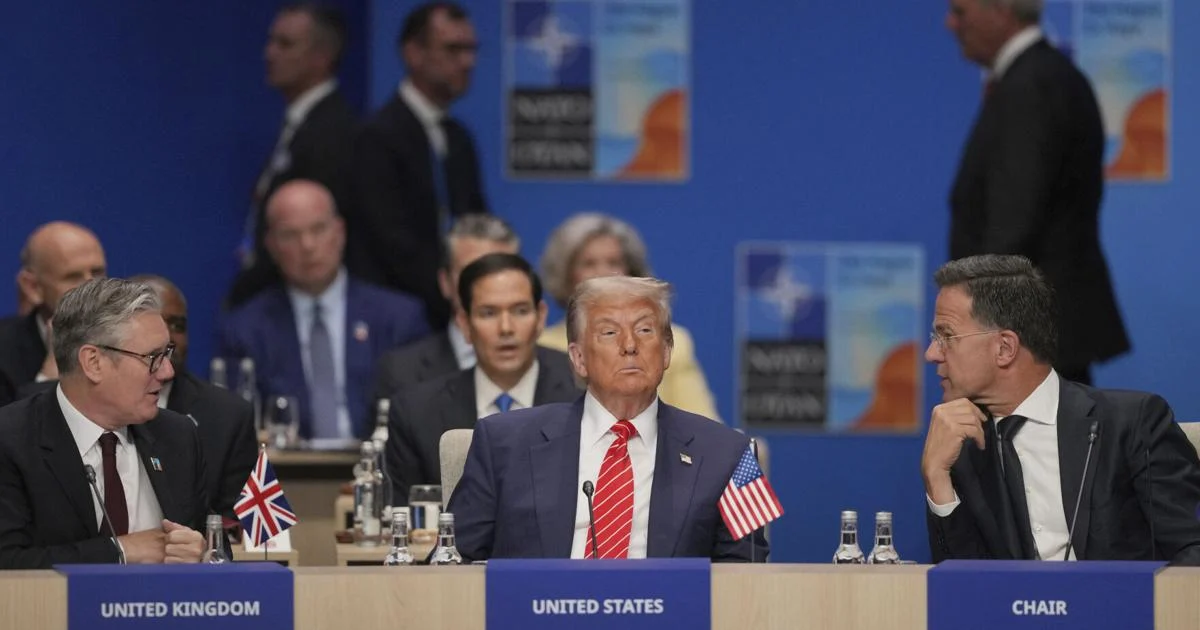“You Are a Peace-Loving, Strong Leader—Your Bold Action in Destroying Iran’s WMD Sites Will Make the World Safer,” Says NATO Secretary General Mark Rutte
The 2025 NATO Summit has showcased an extraordinary blend of diplomatic tension and geopolitical strategy, particularly surrounding the presence of U.S. President Donald Trump. In light of the recent U.S.-led strikes that destroyed Iran’s nuclear facilities,
“You Are a Peace-Loving, Strong Leader—Your Bold Action in Destroying Iran’s WMD Sites Will Make the World Safer,” Says NATO Secretary General Mark Rutte
“You Are a Peace-Loving, Strong Leader—Your Bold Action in Destroying Iran’s WMD Sites Will Make the World Safer,” Says NATO Secretary General Mark Rutte
[The Hague, June 25, 2025]
The 2025 NATO Summit has showcased an extraordinary blend of diplomatic tension and geopolitical strategy, particularly surrounding the presence of U.S. President Donald Trump. In light of the recent U.S.-led strikes that destroyed Iran’s nuclear facilities, NATO Secretary General Mark Rutte praised President Trump in glowing terms, saying,
“You are a symbol of peace, an embodiment of courage.”
“Your firm action on the Iran issue sends a powerful message to the entire world. You are a strong leader, but also a man of peace. It was your leadership that made the ceasefire between Israel and Iran possible,” Rutte added.
He also credited Trump’s influence in pushing NATO members to increase defense spending:
“Except for Spain, all NATO members are now willing to spend 5% of their GDP on defense — something no previous U.S. president has achieved in decades.”
On his way to the Netherlands to attend the summit, Trump published excerpts from Rutte’s personal messages on his Truth Social account, which read:
“Your decision on Iran is truly historic. You have done what no one else dared to do. This will make all of us safer.”
Reactions have poured in from various NATO allies and key partners. While many have identified Iran’s nuclear program as a “threat to global security,” others have responded with cautious diplomatic tones, avoiding direct condemnation of the strikes.
UK Prime Minister Keir Starmer stated:
“Iran must never be allowed to develop nuclear weapons. While the U.S. action has helped reduce that threat, it is now time to pursue diplomatic solutions.”
“As we discussed at the G7 Summit, we hope to establish a comprehensive Middle East peace framework—where a ceasefire in Gaza will be a central element,” he added.
According to experts, Trump’s military and diplomatic maneuvers may significantly influence the future of U.S.-led alliance politics. However, much depends on how Iran responds diplomatically to the strikes and whether it returns to negotiations under international pressure.
Diplomatic insiders suggest that in this context, a new agreement — a so-called “Iran Nuclear Deal 2.0” — may emerge, potentially brokered through NATO, the European Union, and the United Nations.










